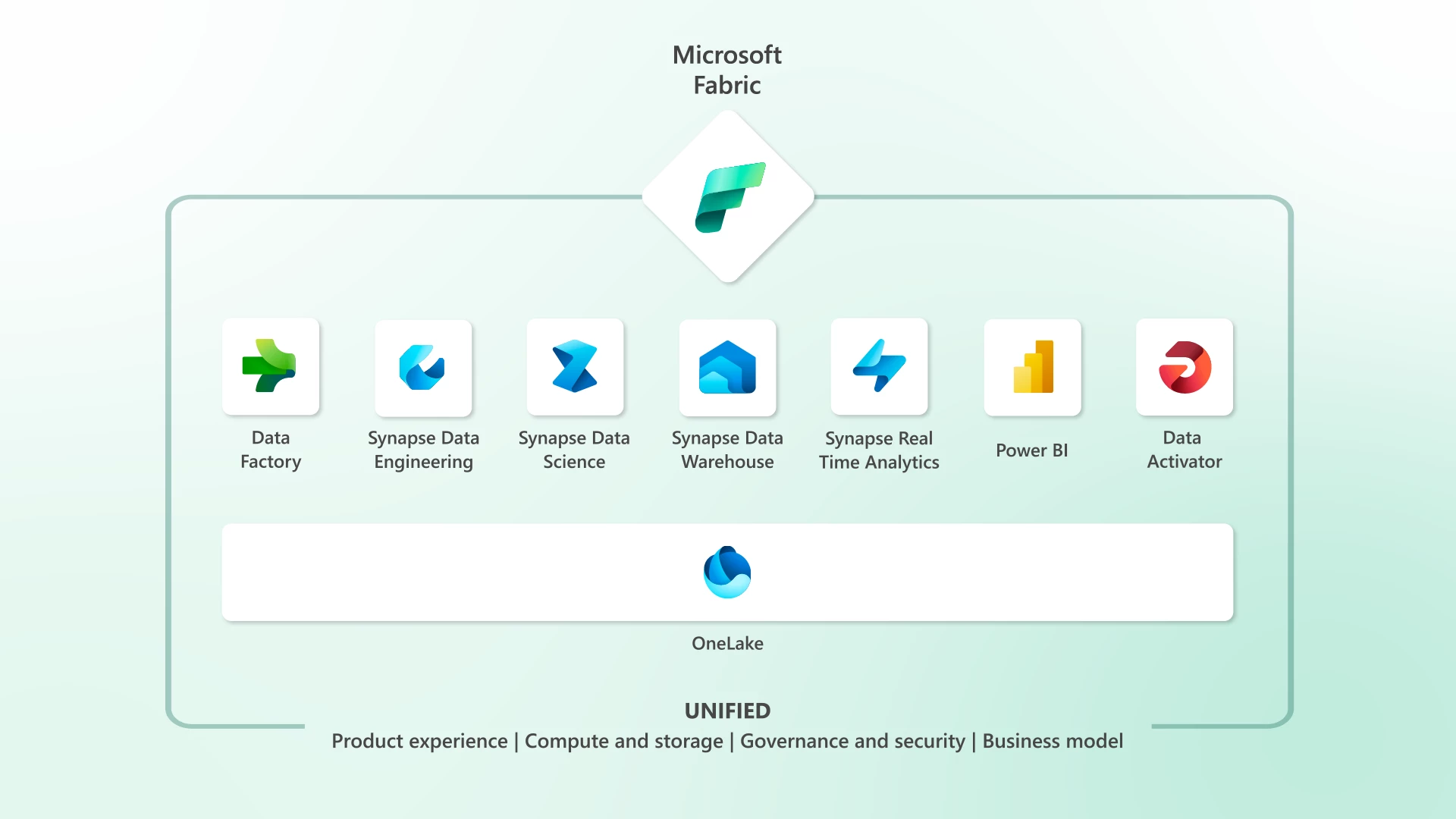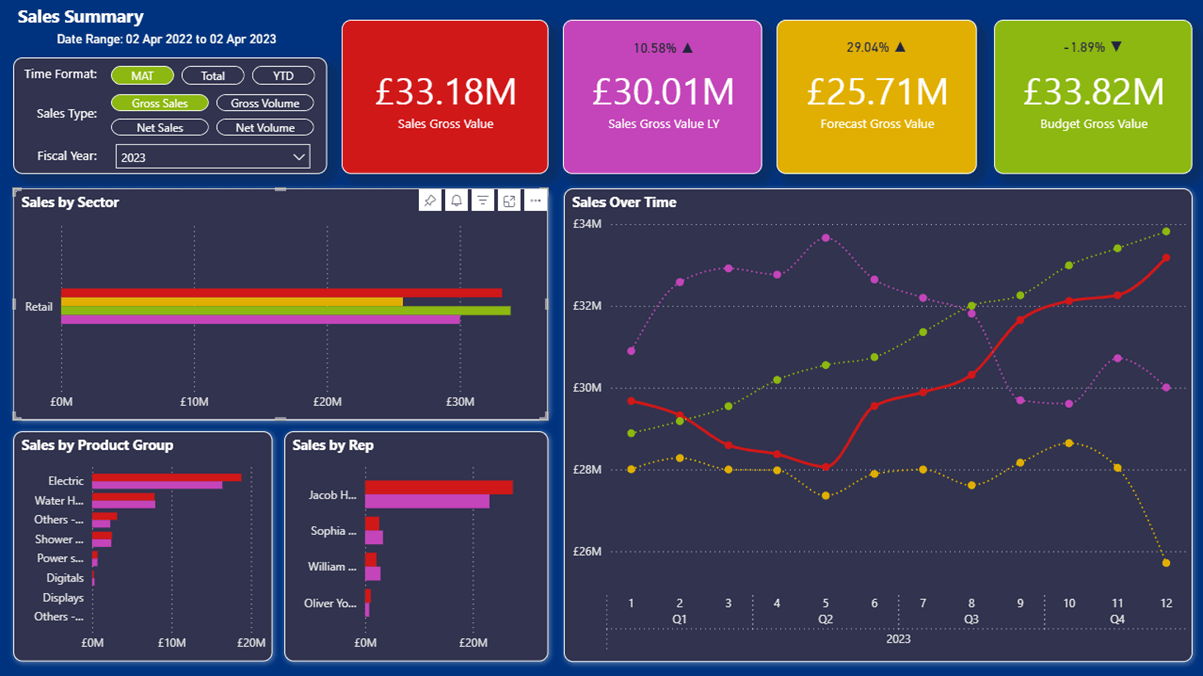Blog Post
How Upgrading to Microsoft Fabric takes Power BI to the next level
Unleashing the Power of Data Power BI is the leading data analytics solution on the market for businesses of all sizes today. By converting raw data into compelling visualizations and interactive reports, stakeholders can grasp data stories quickly and ma


Unleashing the Power of Data
Power BI is the leading data analytics solution on the market for businesses of all sizes today. By converting raw data into compelling visualizations and interactive reports, stakeholders can grasp data stories quickly and make informed decisions on action. Building on this success, Microsoft has now unveiled Fabric, a single comprehensive platform that integrates data and analytics tools across the entire data lifecycle. What’s more an AI Copilot within Power BI now helps users create more effective and efficient reports along with automated insights.
What does that mean for Microsoft customers already using Power BI alongside an Azure data warehouse?
You may have built a successful Business Intelligence solution using Power BI and the Azure data platform but as the amount of data from different sources increases the picture becomes inevitably more complex and you may need to look again at your original objectives and realign them in light of future plans.
At PTR – Power BI consultants UK, we believe that this may mean revisiting your data strategy as Business Intelligence technology moves forwards at speed. Integrating the advantages of AI with a nifty AI Co-pilot is just one of the developments giving new users of business intelligence the edge.
For tips on conducting a data strategy review we advise looking at this resource we have created here to get you started on migrating azure data warehouses and Power Bi to Microsoft Fabric
In this blog we outline just a few of the ways you can start to benefit when you update your Power BI to Microsoft Fabric;
Steps to taking Power BI to the next level with Microsoft Fabric:
Assess Current Reports:
Start by reviewing your existing reports in Power BI to identify areas that need a visual refresh.
Look for opportunities to improve the layout, colour scheme, and overall user experience.
Update Visualizations:
Replace outdated visuals with modern Microsoft Fabric components like buttons, icons, and cards.
Utilize the updated visualization options available in Power BI to create more engaging reports.
Implement Consistent Design:
Ensure consistency in design elements such as fonts, colours, and spacing throughout your reports.
Use Microsoft Fabric's design principles to create a cohesive and professional look.
Enhance User Interaction:
Incorporate interactive features like tooltips, drill-throughs, and bookmarks to make your reports more engaging.
Leverage Microsoft Fabric's interactive components to improve user experience.
Optimize for Mobile:
Consider how your reports will appear on mobile devices and optimize them for smaller screens.
Use responsive design techniques supported by Microsoft Fabric to ensure a seamless experience across different devices.
Training and Adoption:
Provide training to users of Microsoft Fabric so they can discover and utilise all the new and updated features and design elements available.
Encourage adoption by highlighting the benefits of the new design language in improving data visualization.
Feedback and Iteration:
Gather feedback from users on the updated reports to identify areas for further improvement.
Iterate on the design based on feedback received to continuously enhance the effectiveness of your data strategy.
By following these steps and leveraging the capabilities of Microsoft Fabric in Power BI, you can revamp your data strategy, create visually appealing reports, and improve user engagement with your data visualizations.
Our consultants at PTR would be happy to help walk you through the process from assessing your needs to creating an updated Fabric Data Strategy.
Our Fabric Consultancy Service will help you and your team get started on your Fabric journey, working in tandem to take ownership of the Fabric solution. Read here for more on how to migrate from your Azure Data Warehouse and Power BI to Microsoft Fabric Migrating From Azure Data Warehouses & Power BI to Fabric | PTR
This is Business Analytics for the next generation of AI so we don’t want you to miss out.
Share This Post
Mandy Doward
Managing Director
PTR’s owner and Managing Director is a Microsoft certified Business Intelligence (BI) Consultant, with over 35 years of experience working with data analytics and BI.
Frequently Asked Questions
Couldn’t find the answer you were looking for? Feel free to reach out to us! Our team of experts is here to help.
Contact Us


